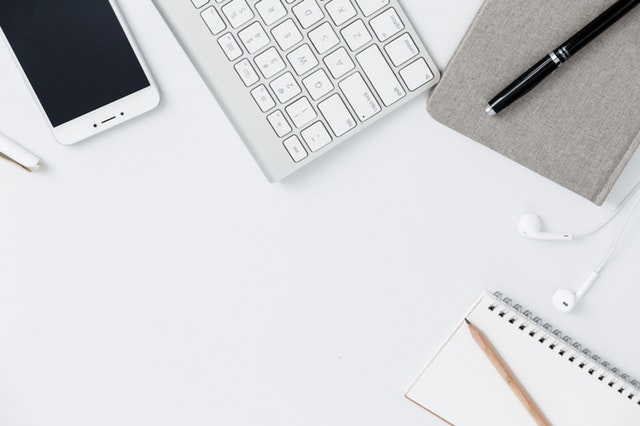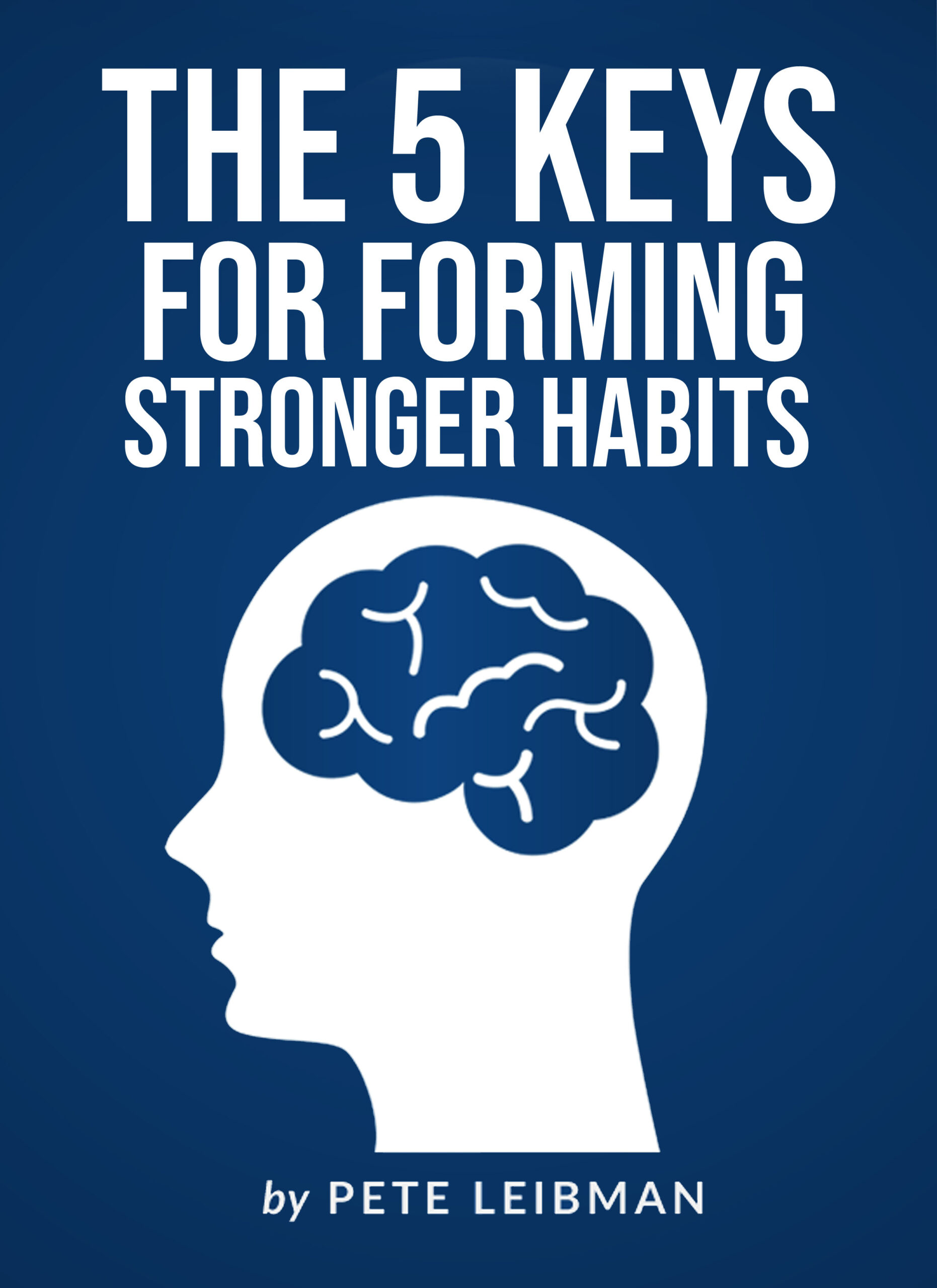
The number of people who regularly work from home (excluding those who are self-employed) grew by more than 110% between 2005 and 2017.1 Teleworking will continue to become more common and acceptable, as more and more employers are supporting or even encouraging employees to work remotely for part or all of the time.
Over the years, I’ve had stretches when I worked from home full-time. I’ve also had jobs where I worked from home occasionally (maybe one or two days a month). While the idea of working remotely might seem appealing to those who dislike going into an office every day, teleworking presents some significant and unique challenges. In this article, you’ll learn five secrets for being much more productive when you work from home.
Note: If this is your first time at StrongerHabits.com, you can click here to take a free assessment that measures your habits in four areas that have a major impact on how you feel and perform each day. The assessment takes less than 3 minutes, and you get your results immediately.
- Create an ideal workspace at home.
My first experience working from home full-time was a six-month stretch much earlier in my career. At that time, I lived in a townhouse with two roommates. The only area that I could use for work was my bedroom, so I set up a small desk with a computer in the corner of the room.
As you might imagine, this did not work well. It was impossible to go to sleep and stop thinking about work at night- since I could see my desk from my bed. It was also difficult to stay motivated and focused on work during the day- since I could see my bed from my desk.
Avoid doing work in your bedroom at all costs when you work from home. Ideally, you would designate a separate room of your home strictly for work. If that’s not possible, however, try to carve out part of another room just for work (i.e. in your living room or dining room).
You should also give some thought to the design and layout of the area of your home where you will work. A comfortable office chair is a must, as is a comfortable and permanent desk/computer station.
- Start the day with exercise and a healthy breakfast.
Working from home eliminates commute time, which saves most people at least 30-60 minutes each day. What about using this “extra time” to get in a good workout and to eat some quality fuel? If you exercise and eat a quality breakfast, you will be well-positioned for a much more productive day of work.
Morning workouts release feel-good hormones and boost your brainpower. As Dr. John J. Ratey writes in Spark; The Revolutionary New Science of Exercise and the Brain, “If you had half an hour of exercise this morning, you’re in the right frame of mind to sit still and focus on this paragraph, and your brain is far more equipped to remember it.”2
Morning workouts also set a strong tone for your day. Start your morning by voluntarily doing something difficult (like getting up early and working out), and you set a powerful tone for the rest of your day.
In regard to breakfast, the fuel (or lack of fuel) that you consume in the morning sets the tone for your eating habits, your energy, and your performance later that day. Skipping breakfast can make you more lethargic and make you more likely to over-eat when you finally break your fast.
- Dress for productivity, not for comfort.
The clothes that you wear when working from home have a big impact on your state of mind, your motivation to work, and your eventual productivity. When you work from home, it might be tempting to wear comfortable clothes that you would never consider wearing to an office (i.e. pajamas, sweat pants, workout attire, etc.) However, this can decrease your motivation to stay focused on work, and it can make you more likely to slack off.
These days, I generally wear a dress shirt, dress pants, and dress shoes when working from home- even if no one else will see me during the day. Wearing very casual clothes makes me feel like a scrub. I’m certain that I’d be less confident, less productive, and less focused if I dressed more casually when working from home.
Don’t dress sloppy when working from home just because no one can see you. Wear whatever will help you perform your best. Dressing professionally helps me be more productive. You have to do what works for you though. If working in casual attire will truly help you be more productive than working in more professional attire, then work in casual attire.
- Establish a strict policy against television and internet surfing.
When you work from home, it can also be tempting to watch television, to surf the internet, or to engage in other forms of entertainment that are not related to your job. This kind of multi-tasking will just reduce your productivity and make you more likely to make errors, however.
If you are like me, you will find it easier to ban television and internet surfing completely during your workday at home, instead of having to figure out when or for how long you can use these forms of entertainment while working from home.
Having a strict policy is generally easier, and it will surely make you more productive than if you divide your attention between work and entertainment for part or all of your day. If this policy seems too rigid, then limit television and internet surfing to your lunch break only. Whatever you do, don’t channel surf or keep a television on in the background throughout the day.
- Get out of the house during the day.
While working from home can help you avoid distractions at work, it can also get very lonely- especially if you don’t interact with many other people throughout your work day. Being home alone all day can be isolating, if not flat-out depressing. This is one reason why your dog is so happy to see you when you get home after leaving him/her home alone for a while!
When you work from home, don’t just stay inside all day by yourself. You could meet a friend for lunch, or you could eat lunch by yourself somewhere outside. You could also step outside for brief walks during the day. Maybe you could do a short, five-minute walk outside in the mid-morning and/or in the afternoon, along with a longer, twenty-minute walk right after lunch.
Years ago, I started a daily ritual to go for a twenty-minute walk outside after eating lunch, which I generally do inside. Any physical benefits from this daily walk are secondary. Instead, this habit is all about clearing my head, getting some fresh air, and taking some time to slow down and disconnect.
A midday walk also helps you come back for a stronger, more energetic second half of the day. In one study, researchers at the University of Georgia found that ten minutes of low-intensity activity (the kind that does not lead to sweating or require a shower) could make participants feel more energized than consuming 50 mg of caffeine, the amount found in a typical can of soda.3
Summary
Working remotely can provide a nice change of scenery from working at an office every single day. However, it also presents some unique challenges. Whether you work from home all of the time, most of the time, or just occasionally, the following five secrets will help you be much more productive:
- Create an ideal workspace at home.
- Start the day with exercise and a healthy breakfast.
- Dress for productivity, not for comfort.
- Establish a strict policy against television and internet surfing.
- Get out of the house during the day.
P.S. If you enjoyed this article, check out my free 40-page eBook and newsletter below.

Free eBook and Newsletter
Download my free 40-page eBook on “The 5 Keys for Forming Stronger Habits.”
You’ll also receive my free weekly newsletter on how to become your strongest self.
Your email is safe. Unsubscribe anytime.
About the author: Pete Leibman is the Creator of StrongerHabits.com. He is a best-selling author, keynote speaker, executive recruiter, athlete, and peak performance coach. His work has been featured on Fox News, CBS Radio, and CNNMoney.com, and over 500,000 people across the world have read his articles.
References for this article:
- “11 Surprising Work From Home Statistics,” Fundera, accessed on June 27, 2018, https://www.fundera.com/resources/working-from-home-statistics.
- Ratey, John J. with Eric Hagerman, Spark: The Revolutionary New Science of Exercise and the New York: Little, Brown & Company, 2008.
- Kristin Morales, “Skip the caffeine, opt for the stairs to feel more energized,” University of Georgia, April 19, 2017, http://news.uga.edu/releases/article/stairs-more-energy-research/

